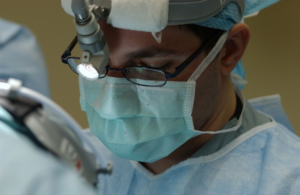
By: Dr. Elton Gomez, medical specialist in regenerative medicine
Throughout the world, all of us, health professionals of all levels are learning about this new virus at a high cost: the lives of patients; likewise, ignorance about the subject, makes resources either inadequate or ineffective, not knowing for sure exactly what resources are best suited for this situation, so all new information is welcome.
Under normal conditions in intensive care service, a percentage of patients must be intubated, a medical-grade plastic tube is placed, connected to a medical device that supplies air and oxygen, and at the same time imitates the function of inhaling and exhaling, to rest a patient’s mechanism and his respiratory system from any medical condition that puts him at risk of dying from hypoxia, or lack of oxygen in the blood.
By improving his general conditions (pressure, oxygen level in his blood, heartbeat, etc.) an attempt is made to remove the tube from his throat, this is called an extubation test, in normal service conditions, a percentage of patients fail to breathe again and therefore either is given more time on the ventilator or doctors decide not to continue, but the percentage of patients who fail extubation tests when affected by COVID19 is abnormally high, and the Health professionals are baffled about it.
 Research has developed a theory to explain this fact, the virus enters the airway, through the nose, reaches the olfactory bulb, which is a paired structure, which is on each side of our brain, with connections to the frontal lobe, and that it is full of nerve terminals, which allow us to process odors and aromas, and associate them with unpleasant, pleasant things or events in our lives. The virus seems to have a nervous topism, that is, it is attracted to the nerves, but in addition to this, it can spread through the basilar vein, also called the basal vein or rosenthal vein, finally reaching the respiratory centers of the medulla oblongata, which allows us to have our respiratory automatism, that is, the automatic function that allows us to breathe.
Research has developed a theory to explain this fact, the virus enters the airway, through the nose, reaches the olfactory bulb, which is a paired structure, which is on each side of our brain, with connections to the frontal lobe, and that it is full of nerve terminals, which allow us to process odors and aromas, and associate them with unpleasant, pleasant things or events in our lives. The virus seems to have a nervous topism, that is, it is attracted to the nerves, but in addition to this, it can spread through the basilar vein, also called the basal vein or rosenthal vein, finally reaching the respiratory centers of the medulla oblongata, which allows us to have our respiratory automatism, that is, the automatic function that allows us to breathe.
This is probably the reason why patients, despite being better in their general health, fail to be extubated, there is already a key symptom, to know whether or not a patient will have difficulties when extubated, and this is anosmia, which can be described as the inability to perceive odors. Therefore, if at the beginning of the disease the patient or their relatives report this symptom, we must be careful when treating these kinds of patients and give them more time with the respirator, while eliminating the damage to respiratory centers or appropriate treatment is established for this condition.





